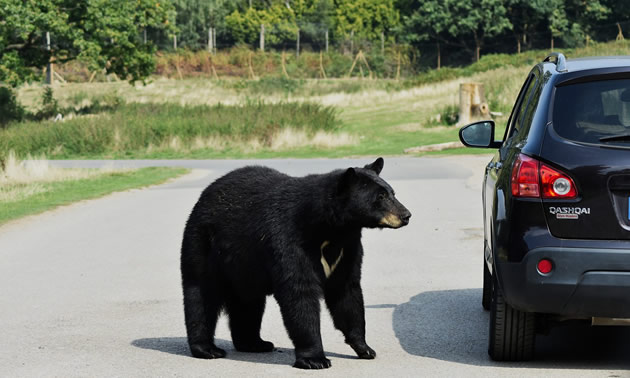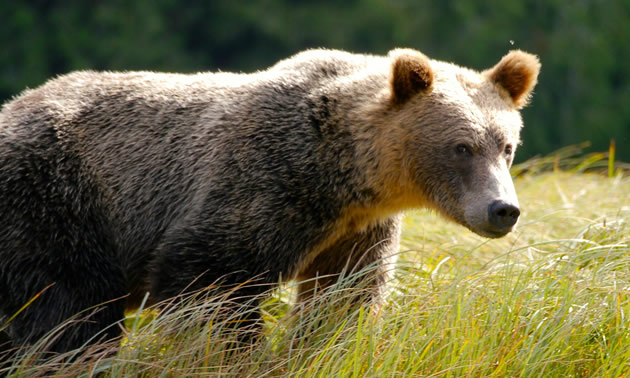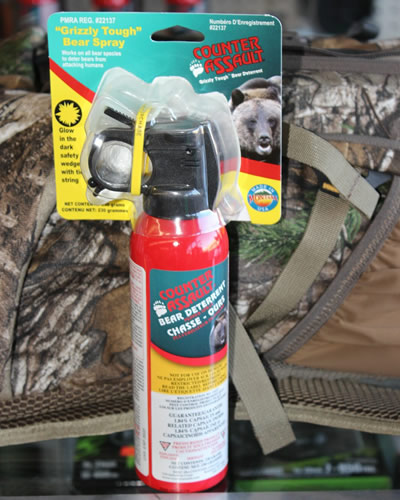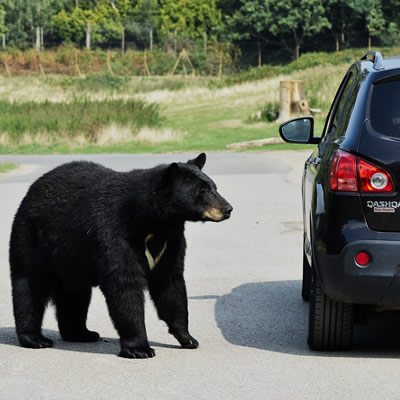Be bear aware while RVing
There are ways to be safe with camping in bear country

Bears are fascinating creatures–there is no denying that fact. We all like to see them or, at the very least, know they are out there on the landscape. Seeing wildlife is a large part of why many of us want to get out there travelling and camping. However, we must keep in mind that wildlife such as bears are dangerous, particularly if you get too close to them.
One place you do not want to see one is wandering through your campsite. To achieve that goal, I’ll offer a few tips on avoiding this occurrence and what to do if it happens.
Bruin biology
In Western Canada and part of the Western U.S., there are two types of bears: the black bear and the grizzly bear. The black bear is most often associated with campgrounds while the grizzly is more of a backcountry bear. Having said that, both can be seen along the highway and in populated camping areas.
Both bears are omnivores, which means they will eat anything from insects and berries to meat. However, a habituated bear often prefers “campsite food.” Both species range in colour from black to blond with the grizzly commonly having silver tips on its hair similar to women’s frosted hair styles. As well, the grizzly has a predominant hump on its shoulders. Sizewise, the black runs from 45 to 200 kilograms (99 to 441 pounds), whereas the grizzly runs 100 to 400 kilograms (220 to 882 pounds).
Both are protective of food sources, territory and young to a fault. Seasonally, spring and late summer see increased opportunity to encounter a bear. This is due to them searching out food post- and pre-hibernation, which can correspond with increased camper numbers.

Avoiding bears in campsites
To keep bears from visiting your campsite, it is as simple as keeping a clean, organized camp, regardless if you are in a tent, a tent trailer or a motorhome. Here are a few simple guidelines:
- Food should be stored correctly. Never keep or consume food in a tent you will sleep in, not even snacks at bedtime. Where possible, food should be stored in a vehicle, as it will be difficult for a bear to access. Inside an RV, a refrigerator most effectively reduces food scent by containing it. Where this is not an option, store food in a tree well off the ground and away from the tree trunk. Another option is to use a cooler that has been certified as “Bear Proof” by the Interagency Grizzly Bear Committee. These are made by companies such as Yeti, Orca and Engel, to name a few. As the saying goes, a fed bear is a dead bear.
- Clean up right after eating. All dishes and cooking utensils need to be washed and put away right after eating. Don’t leave them out overnight as this can attract unwelcome visitors from bears to skunks. Avoid leftovers as cooked food tends to have a higher scent: think cooked versus raw bacon. Place all your food back into correct storage.
- Dispose of garbage properly. All campgrounds in bear country will be equipped with bear-proof trash bins. Never burn garbage. Not only does it stink and cause pollution, but there could be unburned food left in the pit, which will attract wildlife to your site.
- If fresh fish is on the menu, never clean them in camp. Most campgrounds will have a dedicated fish-cleaning station with appropriate containers for disposal of fish guts. And never leave fish guts on the shoreline as the next person who comes along could get a nasty surprise when they spook a feeding bear. Always follow the provincial regulations for disposal.
- Keep a close eye on your kids. Don’t let them wander away in bear country. Predators might see them as prey. Encourage them to make noise while playing as there is nothing more disturbing to a bear than the human voice.
- Keep your dog tied up or on a leash when walking. A dog that suddenly comes upon a bear will head directly to you, usually with the bear in hot pursuit!
- Heed all wildlife warnings posted in the campground. Provincial and national parks have these warnings at virtually every entry point.
What to do if a bear comes to camp
If, after all your precautions, you are visited by a bear, don’t panic as this will make matters worse. A bear can show up in your site regardless of how clean you are as the next campsite might not be as organized and the bear is homing in via your site. Keep these steps top of mind:

- Whenever I am camping in bear country, I keep bear spray close at hand. By this I mean in a belt holster or within arm’s reach. I never have it in a backpack or other container as seconds count. I often keep a couple of cans handy. Everyone should learn how to safely use bear spray. And remember that bear spray does have an expiration date.
- Avoid getting between the bear and any food source that might have attracted it. Also, avoid any cubs.
- Gather up any children and pets; take shelter in the camper or vehicle. Do not run as that will trigger an attack.
- Once it is safe, contact the park officials and let them know what happened as soon as possible.
Enjoy your trip, including appreciating the adventures of seeing wildlife. But keep in mind that you are camping where the bears live, so be respectful.








